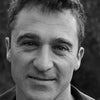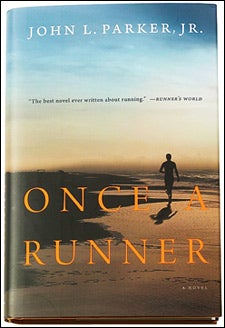“The best novel ever written about running,” screams the blurb on the cover, attributed to no less an authority than Runner’s World. Impressive. That is, until you start to think about the running-novel genre, fail to come up with another title, and begin to wonder if this isn’t damning by faint praise. It’s not. Parker’s tale, about a collegiate miler named Quenton Cassidy whose Olympic ambitions are derailed by the controversial campus politics of the sixties, treads over ground that is both inspiring and endearingly familiar to anyone who’s ever laced up a pair of track shoes. The cultural references can seem dated┬ŚParker name-checks Peter Snell (an Olympian; I Googled him) and Adidas Gazelles (as workout devices, not trendy footwear)┬Śand the training techniques will sound antiquated to runners steeped in lactate-threshold data crunching. These are forgivable sins when you consider that Parker, a former collegiate miler, self-published Once a Runner in 1978. Since then, the book has gained a hand-me-down following among the waffle-sole crowd, but until Scribner rewarded its cult status this year with a 25,500 first run, it was nearly impossible to find a copy. And in this narrative, the battered publishing industry might have planted the seed for a new business paradigm. Discard giant advances; instead, reward artists who develop their audiences organically. Will it work? Who knows. Read Once a Runner because it’s a great story told greatly; buy it because you’ll be giving this publishing model a shot.
Once a Runner
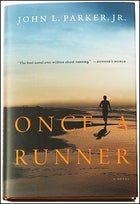 ╠ř
╠řSummer World: A Season of Bounty
By Bernd Heinrich (Ecco, $27)
Better The Second Time
Swimming with Piranhas at Feeding Time: My Life Doing Dumb Stuff with Animals
By Richard Conniff (W.W. Norton, $26)
A collection of hilariously informative, previously published essays on adventures in the wild, this book will remind you why you always wanted to be a naturalist.
Summer World: A Season of Bounty
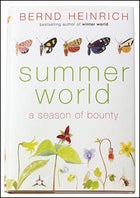 ╠ř
╠řWhat is summer for? You may imagine bare elbows, apricots, and river running. In other words, sex, food, and adventure. It’s the same agenda throughout the animal king┬şdom, as described by biologist Bernd Heinrich. A follow-up to his cold-weather-survival tome Winter World, this volume is about the riotous living that gets condensed into a few months. In order to get the story, Heinrich nerds out in the woods near his New England home, relocating wasp nests, dismantling anthills, and digging up a turkey carcass. (At this, he declares, “Down in the soil I discovered a gem┬Śa beautiful, iridescent shiny purple dung beetle that I had never seen before.”) Heinrich’s enthusiasm for decomposition is matched only by his cerebral forays into the meaning of it all, as when he turns his lens on us.
Homo sapiens, he speculates, not Neanderthals, came to rule because we evolved in Africa’s summer grass. There, we became uniquely hairless among primates and figured out how to wear clothes, allowing us to outflank our furrier cousins. Summer made us human. With Heinrich as our guide, even the creepy parts of the season are fun.
Outcasts United: A Refugee Team, an American Town
By Warren St. John (Spiegel & Grau, $27)
Turn Back Now: Two much-hyped adventure narratives go astray
A Pearl in the Storm: How I Found My Heart in the Middle of the Ocean, by Tori Murden McClure (Collins, $26): McClure, suffering from social isolation and unsatisfactory dating on land, rows into the Atlantic, is turned back by hurricanes, returns, and marries.
To the End of the Earth: Our Epic Journey to the North Pole and the Legend of Peary and Henson, by Tom Avery (St. Martin’s Press, $27): Avery dogsleds to the North Pole to prove Robert Peary did, in fact, dogsled to the North Pole 100 years ago. The resulting book runs little risk of reigniting the controversy.
Outcasts United
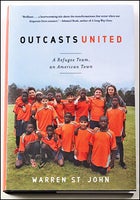 ╠ř
╠řSo what if David Beckham is moving to Italy? In Outcasts United, a scrappy Jordan-born coach named Luma Mufleh organizes the Fugees┬Śthree youth soccer teams rostered from war-ripped countries across the globe┬Śin the unfriendly confines of Clarkston, Georgia. Lee Swaney, Clarkston’s grandfatherly mayor, doesn’t want his town’s fields used for soccer; they’re for playing baseball. Swaney draws a line in the sand and the Fugees find themselves at the Battle of Milam Park, a literal turf war. St. John, a New York Times reporter and author of the college-football-addiction confessional Rammer Jammer Yellow
╠ř
╠ř
╠ř
╠ř
╠ř
╠ř
The Talent Code: Greatness Isn’t Born. It’s Grown. Here’s How.
By Daniel Coyle
The Talent Code
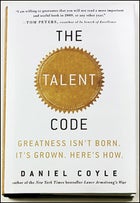 ╠ř
╠řNatural-born ability is taking a hit these days, and A-Rod is only partly to blame. In his bestselling Outliers, Malcolm Gladwell argues that success stems more from opportunity and upbringing than from innate gifts. Now, contributing editor Coyle suggests that super-achievement boils down to something called myelin, the fatty white stuff wrapping the brain’s nerve circuits. And here’s the good part: We can actually grow more of this neural insulator by training harder and smarter. Coyle lays out the myelin theory through visits with top neuroscientists and travels to the world’s most rarefied breeding grounds┬Śthe soccer fields, music schools, and tennis courts that consistently churn out superstars. “They have entered a zone of accelerated learning that, while it can’t quite be bottled, can be accessed by those who know how,” Coyle writes. Athletes at Moscow’s Spartak Tennis Club swing a racket for hours, no ball in sight, while a weathered coach barks orders: slow down, fine-tune, repeat. At a music school in upstate New York, violin students screech through individual measures, out of order and off rhythm. As Coyle explains it, this sort of “deep practice” not only pushes us just past the limits of our abilities but also tells our brains to produce myelin. It’s an intriguing explanation for the old “practice makes perfect” idea, and Coyle presents it in a way that’s always entertaining and often inspiring. And if the theory is correct, we have no one to blame but our lazy selves if we’re not tearing up the courts at Wimbledon.
Wanting
By Richard Flanagan
Wanting
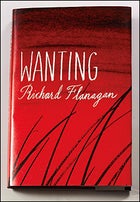 ╠ř
╠řThere’s a curious meeting at the heart of this novel. In 1854, Lady Jane Franklin, widow of the explorer Sir John Franklin, invited Charles Dickens over for tea. At the time, London was atwitter with the news that a lesser explorer, John Rae, had discovered evidence of cannibalism among the remains of the members of Franklin’s expedition to the Northwest Passage, which had gone missing nine years earlier. Lady Jane begged Dickens to refute the accusation. Dickens agreed. The charge pierced the idea at the heart of the British Empire: that colonialism was civilization’s triumph over savagery. “We all have appetites,” says Flanagan’s fictionalized Dickens. “But only the savage agrees to sate them.” Flanagan, the Tasmanian-born author of the brilliant Gould’s Book of Fish, turns those bones of history into a beautifully realized rumination on love, desire, and the tortured history of his native land. It’s a tricky thing to pull off┬Śthe author cuts between Dickens’s life in 1850s London and Sir Franklin’s stint as Tasmania’s governor, in the 1830s┬Śbut Flanagan does it with grace. As we watch a young Lady Jane’s motherly love for an orphaned Aboriginal child bloom and wither under the colonial strictures of the time, Dickens’s own frozen passions are thawed by a beautiful actress. Though the great writer fiercely defends Franklin against the (probably true) charges of cannibalism, he finds happiness by giving in to his own savage appetites. And, lo, the empire does not fall.
Born to Run: A Hidden Tribe, Superathletes, and the Greatest Race the World Has Never Seen
By Christopher McDougall (Knopf, $25)
Born to Run
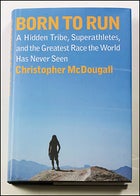 ╠ř
╠řIn Mexico’s Copper Canyon, where Pancho Villa once eluded George S. Patton and cartels now tend their crops, there lives a tribe who eat mice, inhale corn beer, and run distances that would leave Dean Karnazes whimpering in a support vehicle. Ever since seven cape-and-sandal-clad Tarahumara Indians obliterated a field of PowerBar eaters at the 1994 Leadville Trail 100 ultramarathon, the running world has been obsessed with the athletes, who responded to the attention by disappearing. In this book, which is equal parts quest, physiology treatise, and running history, McDougall, an enthusiastic but oft-injured jogger, seeks to learn the secrets of the Tarahumara the old-fashioned way: He tracks them down. His guide is a gringo expat named Caballo Blanco (“White Horse”), who dreams of arranging a showdown between the Tarahumara and America’s top ultra-runners. Improbably, this happens┬Śthe White Horse lures six endu┬şrance stars, including Scott Jurek, to race the Tara┬şhumara on their home turf. Spoiling the ending would be criminal, but I’ll say that the climactic race reads like a sprint, which is remarkable, since the author spends all 50 miles wheezing at the back of the pack. When McDougall writes of the Tarahumara, “They remembered that running was man┬şkind’s first fine art, our original act of inspired creation,” it doesn’t feel overwrought. It simply makes you want to run.

